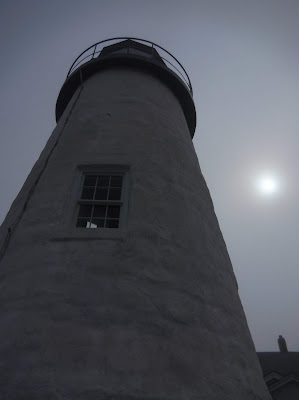When my mother would fall
and break herself, we’d take turns
washing her clothes or making
supper, braising the soup bone the way
supper, braising the soup bone the way
my grandmother said to, on the phone
at night, after seven
because it was the cheapest
time to call. I’d make sure
the potatoes were clean after
they were peeled, and the carrots
too, I’d change the water a few
times and the mud of the last summer
they were in the earth would drift
down the drain. It would swirl and drift
down the drain. It would swirl and drift
past my wrists, water up to my
elbows really, the gleam
of the marigold peel, the cream-
white of the potato, their black sprouting
eyes now in the chicken feed bucket
and a thicker, lobbed-off piece I had to cut
and squeeze the rot out. Tell me you won’t be
and squeeze the rot out. Tell me you won’t be
amazed when, come the early spring,
what we've thrown out behind the barn
all winter long hasn’t come back and with all that
soaking ammonia, the whole November
to April of the shut-in chickens is pitch-
forked out and dumped, barrow
after barrow, some under-dust drifting up
my nose, or to the doghouse, or some
way on down the driveway where
last week in her cups and in the rain, the car
stalled on the edge of the ditch, the culvert
stalled on the edge of the ditch, the culvert
crumpled with the weight of it all, caved
in like my mother’s mouth after
the stroke, inaccessible, a vice. I’m
saddest about this in winter, that crimped
culvert, because when I was small I’d scamp
like the cats left outside and get to the middle
under the driveway, before it went out into the dead
frozen ditch again and the broken blond
grass and all the world, all of it, would have
no noise at all, not the sluice, sluice, sluice
of thin carrot peelings or potato too
or the wet slump of it going deep from
the top if there were that January thaw,
down from it all behind the barn,
not the pause (but closest of all to that)
between the tip to the fall and the landing,
the bone still whole, undamaged, quiet
quiet before the impact of it broke
the gates open. And the scream is the first
thing through, and the skin peeled back,
not the second but close, close to
the bone and going, going, like breathing
out of your nose when your mouth’s clamped
shut refusing, refusing soup, warm
enough to melt the marrow into
the broth we make, the broth we strain
and then take to her, and she pushes, like
trying to catch herself falling, away.
















